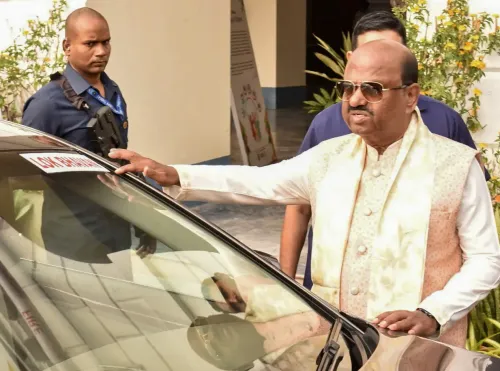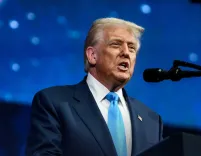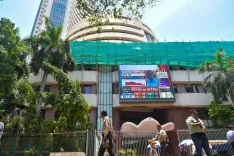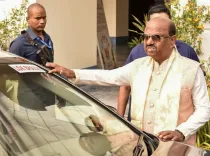Supreme Court to Review Challenges Against Waqf Amendment Act Tomorrow
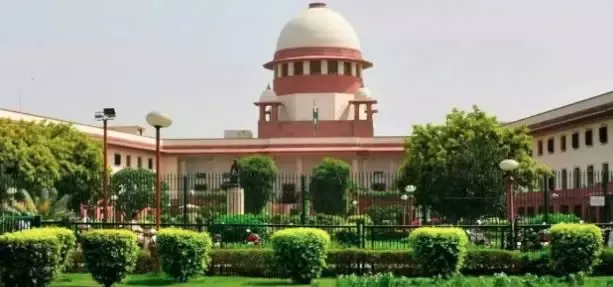
Synopsis
Key Takeaways
- Supreme Court will hear petitions on April 16.
- Several states are defending the Waqf Amendment Act.
- Congress plans to challenge the Act in court.
- Claims of constitutional violations are being made by various petitioners.
- Government argues that the Act benefits poor Muslims.
New Delhi, April 15 (NationPress) The Supreme Court is scheduled to hear on Wednesday a series of petitions contesting the constitutional legitimacy of the Waqf (Amendment) Act, 2025.
According to the cause list available on the apex court's website, a bench led by Chief Justice of India Sanjeev Khanna and including Justices Sanjay Kumar and K.V. Viswanathan, will consider the matter on April 16.
Numerous petitions have been submitted to the top court disputing the constitutional validity of the amendments made to the Waqf Act, 1995.
In contrast, several states governed by the BJP, including Haryana, Maharashtra, Madhya Pradesh, Rajasthan, Chhattisgarh, Assam, and Uttarakhand, have approached the Supreme Court to defend the Waqf (Amendment) Act, 2025.
Additionally, the Hindu Sena has submitted an intervention application supporting the Waqf (Amendment) Act, 2025. The application argues, "There is no infringement of rights for any member of the Muslim community. Instead, the unamended provisions of the Waqf Act, 1995 caused significant harm to the rights and interests of non-Muslim community members, as non-Muslim properties were appropriated by the Waqf board under Section 3 in conjunction with Section 40 of the Waqf Act, 1995."
Following the passage of the legislation by Parliament in the first week of April, the Congress announced its intention to challenge the Waqf (Amendment) Bill (which has now become an Act after receiving presidential assent) in the Supreme Court. They claim it constitutes an assault on the basic structure of the Constitution and is designed to "polarize" and "divide" the nation along religious lines.
Conversely, the government asserts that millions of impoverished Muslims will benefit from this legislation and that it poses no harm to any individual Muslim. Minority Affairs Minister Kiren Rijiju has stated that the legislation does not interfere with Waqf properties, emphasizing that the Modi government operates with the vision of 'Sabka Saath and Sabka Vikas'.
In his petition to the apex court, Congress MP and party whip in Lok Sabha Mohammad Jawed argued that the amendments infringe upon Articles 14 (right to equality), 25 (freedom to practice and propagate religion), 26 (freedom of religious denominations to manage their religious affairs), 29 (minority rights), and 300A (right to property) of the Constitution. Another petition filed by All India Majlis-e-Ittehadul Muslimeen (AIMIM) leader Asaduddin Owaisi claimed that the contested amendments are "ex facie violative of Articles 14, 15, 21, 25, 26, 29, 30, and 300A of the Constitution of India and are manifestly arbitrary." Other petitions have been filed by the Association for Protection of Civil Rights, AAP leader Amanatullah Khan, Maulana Arshad Madani from Jamiat Ulema-i-Hind, the All India Muslim Personal Law Board (AIMPLB), the Social Democratic Party of India (SDPI), the Indian Union Muslim League, Taiyyab Khan Salmani, and Anjum Kadari, all challenging the constitutional validity of the Waqf (Amendment) Act, 2025.
The concept of ‘Waqf’, which is grounded in Islamic laws and traditions, refers to an endowment made by a Muslim for charitable or religious purposes, such as mosques, schools, hospitals, or other public institutions.



